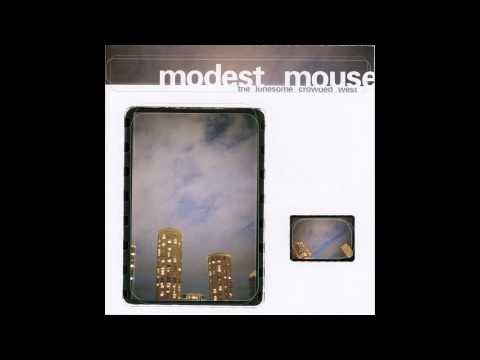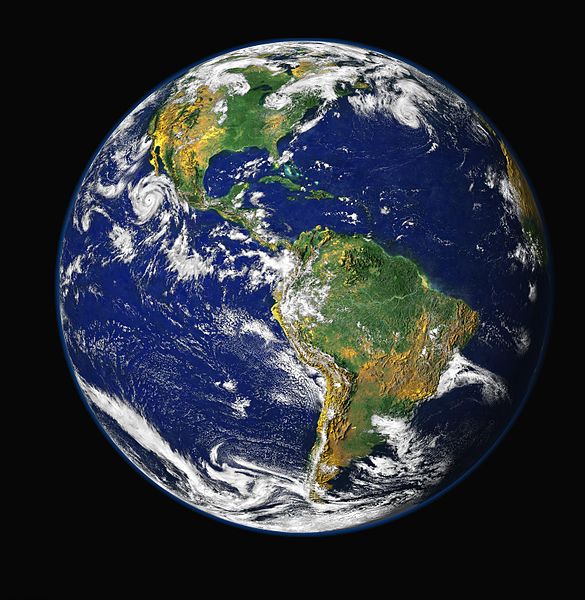
JEFF DUNN; News Editor: dunnja@plu.edu
Isaac Brock was right. In the album released by Modest Mouse “The Lonesome Crowded West”, Brock predicted the now-inevitable metropolitan megalopolis that will end the Seattle-Tacoma area as we know it.
OK, you could say I’m a bit bitter. “Lonesome Crowded” was released in 1997, just before the city began to feel the weight of its own size and expansion. At the time, nothing was being done to prevent issues Brock points out. We’ve made progress since then, but too little, too late, and for the foreseeable future I will be forced to endure the endless monotony of traffic up and down the I-5 corridor.
The satisfaction we gained from our rapid and immediate expansion has cost us much more than just our elbow room. We would’ve been better off “compacting” our conscience and keeping it safe for another time, rather than to “bottle and sell it.”
Nineteen years later, “Lonesome Crowded’s” predictions for a dystopian Seattle have come to fruition. To someone like Brock, who was quick to point out that he was an Issaquah native and who penned such lines as “I didn’t move to the city, the city moved to me,” which carried more weight under the surface than above it. Brock becomes (or already was) the character Cowboy Dan in the song of the same name, who rails against the city encroaching on his lonesome, crowded west. On “Convenient Parking,” Brock bemoans the destruction of nature to make way for the paved world. He even comes off as accusatory (Well aren’t you feeling real dirty/Sitting in your car with nothing/Waiting to bleed on the big streets).
“Teeth Like God’s Shoeshine” opens with “From the top of the ocean / To the bottom of the sky / I get claustrophobic.” Here, at the top of the album, Brock sings against the dangers of consumerism. Brock’s entire world is shrinking around him.
The Seattle he knows and loves is rushed with wave after wave of new residents, draining themselves into spaces that weren’t there before, propelling the city ever-forward on its capitalist tide. The influx of Amazon employees has long been touted as the reason behind rising rent costs in the downtown and South Lake Union area (Brock couldn’t have predicted Amazon specifically when he wrote “Workin’ real hard to make that internet cash/ work your fingers to the bone while sittin’ on your ass on the album’s fifth track, Jesus Christ Was An Only Child).Seattle has crested since 1997.
The Seattle-Tacoma-Bellevue area added 57,000 people in the last year and remains the nation’s 15th largest metro area, with 3.61 million people. Sixty-five thousand of those people live downtown, and 24 new residents move in per week. That’s a lot of people. And all of these people are always out and about. I don’t know if you’ve tried to get anywhere downtown recently, but it’s a nightmare. It’s the fifth most traffic-congested city in the U.S., with drivers in the metro area waiting in traffic for an average of 89 hours per year.
Seattle has nearly 100,000 parking spaces downtown. But, as Seattle Business editor John Levesque puts it, “it always seems that my car is No. 100,001 in line.” Brock and Levesque share the feeling that though we live in the metro area, something as simple as convenient parking has gone down the drain.
The city has not been stagnate in getting traffic flowing again. In November of 1996, (yes, 1996) King, Pierce and Snohomish County voters approved a tax increase which allocated funds for a 25-mile light rail system. Thus began what is collectively known as the “Dark years” for Sound Transit. I’m not being dramatic for effect, the time between 1999 and 2009 wherein the project faced numerous political and financial delays is referred to in numerous source documents as “the Dark years.”
While the Link is open now, and in fact just opened two new stations in Capitol Hill and the U District, it isn’t a solution. The process that was funded 1996, won’t even be anyway to “Ride the Wave” line to ride from Federal Way until 2023.
Seattle is, however, ranked the best city in America to find a job, the fastest-growing big city in the country and the most “cultural” city in the U.S., according to the State of Downtown 2015 release. We may have made small steps in the right direction, but Brock’s central message was ignored. The time has come to pull the bottle of conscience off the shelf, pop the top and drink up.
















